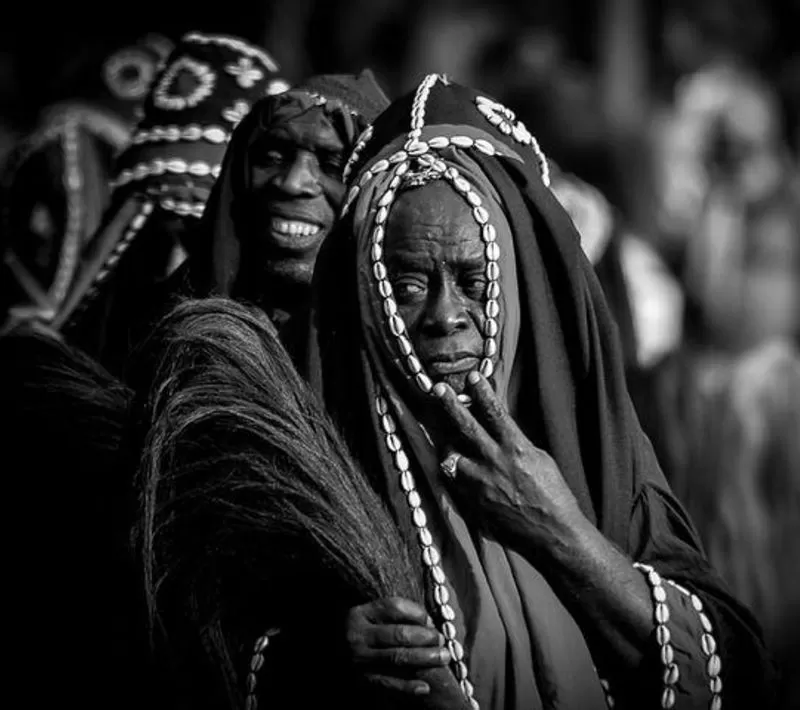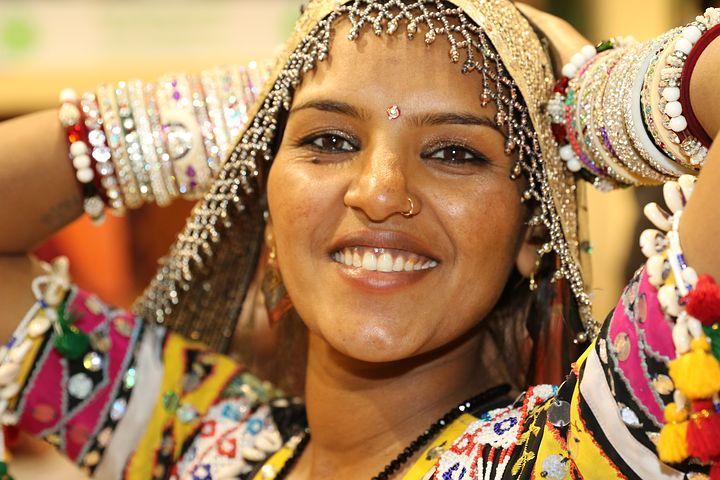African Culture: How Africans Preserve Their Culture

If there is one thing Africans love to respect and protect is their culture. Culture is one intrinsic value of Africans. Not only is the African culture of notable value but it has lovely traits and practices. The African culture seems to have practices that mark every aspect of life, for example, practices that mark the beginning of puberty, marriage, etc. It is because of these values that they sought to preserve these cultural practices for their generations yet unborn.
What is Culture?
Culture refers to the arts and practices manifested by humans as a way of life. Culture also refers to the total way of life of a group of people. It is a submersion of collective traits, beliefs, behaviors of a particular group of people.
Here are some ways Africans preserve their cultures;
- Folklore/folktales
Folklore or folktales are common amongst Africans. These tales are usually common amongst the people- folk. Folklores are an expressive body of culture shared by a particular group of people. These folklores encompass the traditions that are common to the culture and may include oral traditions. The major characteristics of folklore/tales are that it is spoken aloud rather than written down as stories. It is one culture preservation technique that Africans have adopted in order to pass down information from generation to generation.
- Music
Music is very essential to African culture. Africans like everyone else sing about everything. Whether there is a dirge, ode or whatever form it is, Africans also adopt the use of music in preserving their culture. Most of the folktales are accompanied by music. The songs usually have simple melodies and the tales can be used to make up the stories.
- Storytelling
Storytelling is also another way in which Africans preserve their culture. On the other hand, storytelling can be oral or written with the use of creative techniques. Stories can be made up or coined from actual events that are used to describe social or cultural activities as well as teach morals.
- Oral traditions
Oral tradition is a means whereby Africans receive, preserve and transmit orally the knowledge and art of cultural materials. The transmission process is through songs, speech, folktales, chants, prose, proverbs, etc.
- Language
Language is a major instrument in preserving African culture. Right from when the child is born, he/she is given instructions in their mother tongue. Other mediums of preserving the culture would be done using language.
Myth or Truth: Contents Common amongst African
Due to the fact that the basic medium by which Africans tend to preserve their culture is through storytelling or some tale, the issue of myths is actually common amongst them.
What is a Myth? A myth is a traditional story that consists of narratives that are usually pointers to the early history of a people or explaining a natural /social phenomenon. It is mostly about supernatural beings or gods. Some people term myths to be false but the fact that these mythologies are a means of preserving culture is unavoidable.
Whether or not these myths are real or not, the transmission of African culture from generation to generation through different mediums has eradicated any form of falsity that can be attributed to them. The stories our forefathers told about origins are the facts we still hold on to till today. The history penned down by the historians and academia is collected from the elderly whose knowledge is built around these myths. Truth or Myths only history can tell.

5 Aspects You Would Love to Look out For in African Culture
The African culture has some lovely aspects you ought to look out for. These are 5 things you should look at for in African languages;
- Food
The food is to die for. We are sure that we have special delicacies all around the world, but African food is that each culture is showcased through them. Recipes and spices are passed down from generation to generation. Whether it is Ghanaian Jollof or Nigerian Jollof, African food leaves you begging for more.
- Music
Over the last decade, African music has crossed beyond their borders and unto international shores. Afropop or afro tunes showcase the language and beliefs of Africans. An example is a way Nigerian pidgin has crossed over the Nigerian borders. It is usually accompanied by instruments such as drums,zuchi flutes, etc. African music would keep you on your feet all night long.
- Dressing
African dressing may not be your broadway show kind of fashion but is unique in its own way and has also made it across the borders. Whether it is aso ebi or senegalise, campala, adire, etc., Africans know how to bring on the vibe. Not to mention that dressing is an important factor in culture.
- Arts and craft
Arts and culture are also a phenomenon that showcases our culture. The arts and crafts we engage in is evidence of either our geographical location or practices. These arts and crafts may include; bead making, pottery, basket weaving, weapon making, etc.
- Language
Language has a way of making it to every list. This is because language and culture have an intricate relationship. If you really want to enjoy the African culture, have a peek of their language.

Festivals Celebrated in Africa
One interesting fact about the African culture is the aspect of celebrating festivals. This is an important aspect of culture. These festivals are not just times for celebrations but a way of preserving and transmitting the cultures. Some festivals celebrated in Africa include;
- Afrochella celebrated in Ghana
- Argungu fishing festival celebrated in Nigeria
- Bouake festival celebrated in Ivory Coast
- Cairo film festival celebrated in Egypt
- Calabar carnival celebrated in Nigeria
- The crossing of the cattle celebrated in Mali
- Felebration celebrated in Nigeria
- FESTAC 77 celebrated in Nigeria
- Festival of the dancing mask celebrated in Burkina Faso
- Festival of the Dhow countries celebrated in Tanzania
- Fez Festival of world sacred music celebrated in Morocco
- Gaborone international music and culture week celebrated in Botswana
- Gidi culture celebrated in Nigeria
- Harare international festival of arts celebrated in Zimbabwe
- Igogo festival celebrated in Nigeria
- Knysna Oyster Festival celebrated in South Africa
- Kwita Izina celebrated in Rwanda
- Nupe Day festival celebrated in Nigeria
- Panafest celebrated in Ghana
- Sauti Za Busara celebrated in Tanzania
- The Gerewol festival celebrated in Chad
- The Schweppes east African concours d’ elegance celebrated in Kenya
- Timkat/Epiphany celebrated in Ethiopia
- Yam festival celebrated in Nigeria
35 Languages Spoken in Africa
There are diverse languages that are spoken in Africa as a whole. Here is a list of some languages spoken in Africa;
- Afrikaans
- Amharic
- Arabic
- Berber
- Chewa
- Comorian
- English
- Fiote
- French
- Fulani
- Hausa
- Igbo
- Ijo
- Kinyarwanda
- Kirundi
- Malagasy
- Ndebele
- Oromo
- Portuguese
- Sepedi
- Sesotho
- Setswana/Tswana
- Seychelles creole
- Shona
- Sindebele
- Somalia
- Swahili
- Swati
- Tigrinya
- Tsonga
- Umbundu
- Venda
- Xhosa
- Yoruba
- Zulu

Different Dances Famous Amongst Africans
Dance is another aspect of culture that is culturally relative. Africans take pride in their dance and it is performed with so much enthusiasm and skill. Different dance styles are performed for different reasons and these reasons may include; courtship, celebration, gaze, harvest, fertility ritual, rituals, worship, etc. These are some dances famous amongst Africans;
- Adowa performed in Ghana by the Ashanti tribe
- Agahu performed in ketonu by the Egun people
- Agbaja performed in Ghana by the Ewe tribe
- Agwara performed in Uganda by the Alur tribe
- Atilogu performed in Nigeria by the Igbo tribe
- Bikutsi performed in Cameroon
- Bwola performed in Uganda by the Acholi tribe
- Gombey performed in Senegal
- Ingoma dance performed in South Africa by the Zulu tribe
- Kakilambe performed in Mali by the Baga tribe
- Kukere performed in Nigeria by the Efik tribe
- Lamban performed in Guinea, Senegal, and Mali
- Makossa performed in Cameroon
- Muchongoyo performed in Zimbabwe
- Penge performed in Nigeria by the Ijo tribe
- Umteyo performed Amakhwenkwe of the Xhosa tribe
- Yankadi and Macru performed in Guinea

African Countries and Pidgins
Most African countries have pidgins that they speak. This as a result of language contact. When there is no means of communication, people find a way and oftentimes pidgin results. This is the case of some African countries that were colonized. Some pidgins spoken in Africa include;
- Cameroonian Pidgin English
- Kru Pidgin English
- Liberian interior pidgin English
- Nigerian pidgin
- Papuan pidgin English
- Tok pisin

Positive Aspects of Culture
Some positive aspects of culture include;
- Culture fosters unity about people
- It forms the beliefs and ideologies that a group of people holds on to
- Culture gives us identity
- Some cultural practices help us mark her growth e.g. maturity rituals
- Culture aids socialization
- Culture provides laws that guide our actions
- Cultural preservation helps to groom our skills and abilities
Negative Aspects of Culture
Although culture has its positive contributions yet it is sad to know that it also has its negative aspects. These include;
- Some cultural practices are harmful to human life
- Some cultural practices are racial and disregard the rights of women
- It is difficult to pull out from some cultural practices
- Some cultures are myopic and do not give room for advancement

Everything about Africa showcases its culture and every practice preserves them.
All images are sponsored by Pixabay
Train is a female editor and writer at Afrolady International concepts. With knowledge of Linguistics and a love for languages, She objectively edits and writes contents in order to preserve cultural backgrounds, heritage, worldviews and mother tongues. She is bold and unique.



